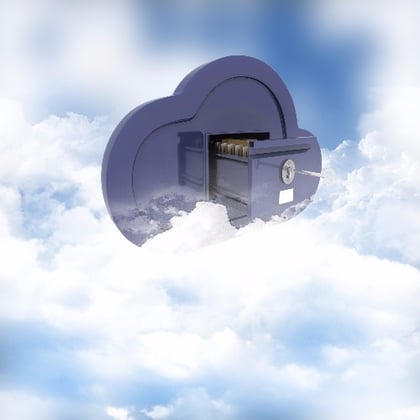Present Blog – IT Thought Leadership
Blog Present-IT thought leadership
Blog Present-IT thought leadership
IT thought leadership blog for CIOs and CTOs in Canada seeking resources to drive IT as a business contributor: hybrid cloud, infrastructure, managed services and security and IT recruitment.
 Analysts are unanimous. The future is cloud computing, public, with a private/hybrid emphasis depending on the size of the company.
Analysts are unanimous. The future is cloud computing, public, with a private/hybrid emphasis depending on the size of the company.
Indeed, the benefits of this cloud services approach are numerous and include more specifically:
• Total cost reduction of possessing IT infrastructure by replacing outdated and at risk systems and applications
• Faster implementation of business initiatives
• Integration with existing infrastructures (hybrid cloud and back-up sites within the Cloud)
However, despite its obvious advantages, cloud computing is not risk-free when it comes to data protection.
Putting a stop to the data protection in the Cloud myth
The American company CTERA ordered a study on data protection in the Cloud from the independent firm Vanson Bourne. The firm observed the disaster recovery strategies of 400 American, German, and French organizations. The study uncovered surprising, if not alarming, statistics:
-
66% of companies put less effort in protecting data when it is contained in the Cloud.
-
62% of companies stated that their cloud provider saving their data on their own servers as the only back-up method was enough.
Therefore, some mistakenly think that just because their company application data is already saved in the Cloud, they don’t need a back-up solution.
These opinions stem from a false belief that applications in the public Cloud are fundamentally resilient compared to those contained in a data center.
However, applications in Cloud require the same level of protection as those found in your local infrastructure.
Why should you make back-up copies of data in the Cloud?
Essentially, it is for the same reasons that would lead you to do the same for your existing infrastructure.
-
The need to recover data destroyed by accident, given that most applications allow the user to delete data.
-
The need for virus or corrupted data protection. Even if your cloud computing provider does have antivirus protection, it could be inefficient for your specific situation or in general.
-
The requirement of recovering data in a specific time for regulatory or conformity reasons.
Therefore, the more your data is crucial, the more reliable your back-up process should be.
Here are 2 more reasons, specific to the Cloud:
-
Your cloud computing services provider is only bound by its contract with you. It could have put measures in place to protect its infrastructure, but that doesn’t mean they apply to your specific situation or comply with your needs.
-
Your cloud computing provider could disappear, given today’s extremely competitive reality and consolidation context. Supposed your only copy of data was created by that provider, you run the risk of losing all your data.
The importance of knowing your back-up needs
When a data protection solution is applied by a cloud computing services provider, it’s important to evaluate its relevance in regard to your needs.
For example, Exchange Online in Office automatically replicates a user’s data on several different websites in such a way as to avoid the loss of a site. However, this doesn’t mean it’s a back-up copy solution, and depending on your restoration requisites, you may need to resort to a third party back-up solution.
Doing a due diligence on your IT recovery plan as soon as possible will allow you to consider your situation and identify your needs.
Don’t hesitate to ask for help from experts in the field.
About Blog
The right use of technology addresses business challenges and drives business growth in all areas of an enterprise. We hope this blog will offer insight into developing strategies and tactics to enable you to identify those key drivers of growth and keep pace with and anticipate the rapid technology change of today.
Posts by Topic
- IT infrastructure (114)
- IT security (71)
- IT Innovation (58)
- Trends (49)
- Cloud (45)
- Managed services (39)
- Mobility (38)
- Digital transformation (29)
- CIO/IT leaders (27)
- Events (26)
- IBM (16)
- News (14)
- Security (13)
- Disaster recovery (DR) (12)
- Recruitment (12)
- Storage (12)
- Big Data (11)
- Collaboration (11)
- High availability (11)
- Case study (9)
- Office 365 (9)
- BYOD (8)
- Customer Experience (7)
- Hybrid Cloud (7)
- Microsoft 365 (6)
- Current events (5)
- SAP Hana (5)
- Business intelligence (BI) (4)
- Converged infrastructure (4)
- Convergence / Hyper-convergence (4)
- Virtualization (3)
- AI (2)
- Future of retail (2)
- trend (2)
- Beacon (1)
- Blog Migrations (1)
- Contests (1)
- Infrastructure TI (1)
- Innovation TI (1)
- IoT (1)
- MDM (1)
- Retail (1)
- Stockage (1)
- Virtualisation (1)
- blockchain (1)
- cio (1)
- replication (1)
- Étude de cas (1)


